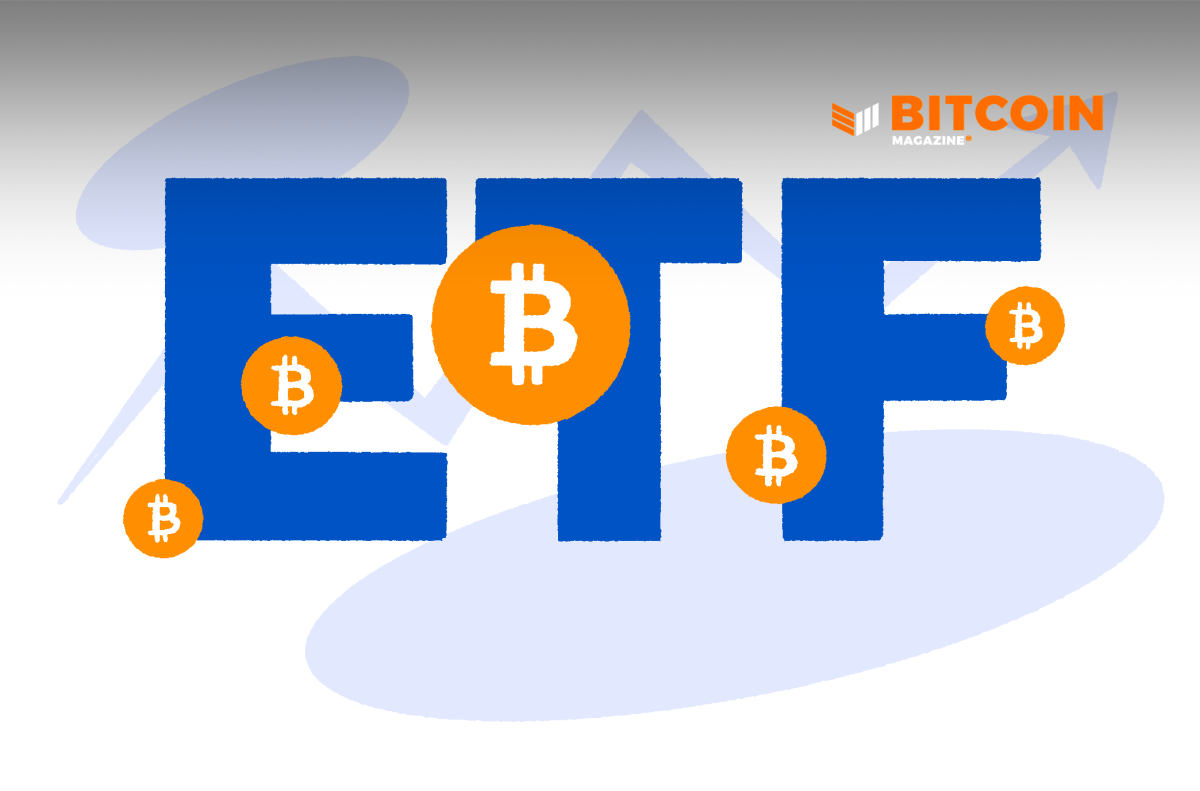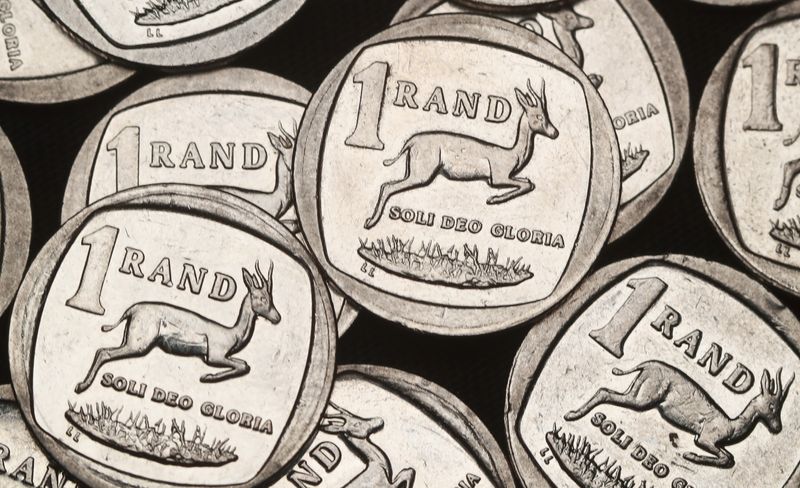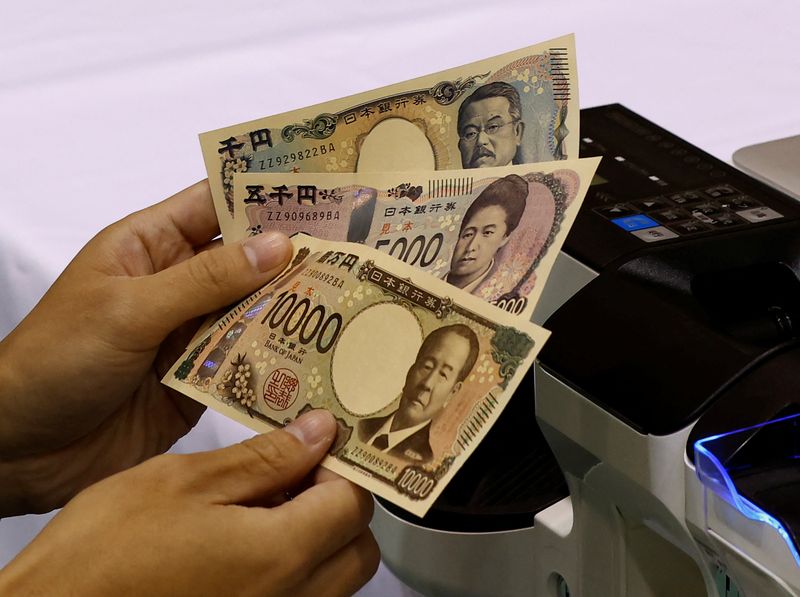Month: April 2024
A Further Crackdown On Bitcoin Mixing Services Will Hurt Human Rights Activists
Yesterday, the US Department of Justice (DOJ) charged Keonne Rodriguez and William Lonergan Hill, co-founders of Samourai Wallet, a privacy-focused bitcoin wallet that also serves as a mixer, with money laundering and operating an unlicensed money transmitting business.
Many, including activists and human rights defenders, spoke out about the significance of this legal action soon after the news broke.
A monumentally bad day for privacy on the internet
The implications of this are so dire
A real “before and after” moment https://t.co/ou6CgT9E0T
— Alex Gladstein 

Lyudmyla Kozlovska, President of the Open Dialogue Foundation, who educates policymakers and regulators about how bitcoin mixing services are tools for pro-democracy activists living under authoritarian regimes who need to preserve their anonymity, voiced her concerns about a broader international effort to outlaw privacy-preserving tools related to Bitcoin.
“Looking at this event and regulatory language in the G7 countries, including the AMLR passed by the European Parliament today, we can already see the beginning of this process to criminalize private payment tools,” Kozlovska told Bitcoin Magazine.
“Crimes can be committed with any technology, but this is not a reason to criminalize or ban by definition a private payment tool, and especially not its developers,” she added.
“Since law enforcement agencies were able to identify a money laundering offense using this particular wallet, it means that they have all the means to detect such crimes and there is no need to criminalize such technology and its developers.”
Kozlovksa went on to explain how most major money laundering schemes happen via the traditional financial rails and exist in the form of expensive real estate deals or payments for consultations with former high-ranking government officials.
Anna Chekhovich, CFO for the Anti-Corruption Foundation and non-profit Bitcoin adoption lead at the Human Rights Foundation, also relies on bitcoin mixers and is worried that the powers that be don’t take into consideration the human rights activists who need to use this technology for their own safety.
“As an activist, I don’t like the trend that they’re trying to control tools like mixers that provide us with privacy, because they are crucial for those who fight against dictatorships — activists, human rights defenders, freedom fighters,” Chekhovich told Bitcoin Magazine.
“At the Anti-Corruption Foundation, we use mixers because we need to protect [the identity of] our donors. We’re responsible for the safety of our donors because we encourage them to support us financially, and for supporting us, they risk being imprisoned up to eight years. We have a huge responsibility to do everything we can not to let that happen,” she added.
“We also need mixers to protect [the identity] of the recipients of our funds.”
With that said, both Kozlovska and Chekhovich implore those who run other bitcoin mixers to not invite bad actors to use their services the same way that the Samourai Wallet founders did.
In the following tweet, which was cited in the charges against Rodriguez and Hill, Samourai openly encouraged Russian oligarchs to use Samourai’s mixing service to circumvent sanctions.
Welcome new Russian oligarch Samourai Wallet users https://t.co/WBhB6J89SR
— Samourai Wallet (@SamouraiWallet) June 30, 2022
“This is total childishness,” Kozlovska told Bitcoin Magazine. “Such rhetoric certainly gives more reason to attack both developers and private payment tools.”
Chekhovich echoed and furthered Kozlovska’s point.
“I absolutely do not support and do not tolerate those who encourage Russian oligarchs to use bitcoin or any Bitcoin-related tools like mixers,” Checkhovich told Bitcoin Magazine. “It was wrong to say such things, and not only was it bad for the owners of the platform, but it’s also bad for the bitcoin community in general.”
Beck & Bulow Adopts Bitcoin as a Treasury Reserve Asset
Beck & Bulow, a nationally acclaimed meat and seafood company based in Santa Fe, New Mexico, has announced its decision to accept Bitcoin as payment online and in-store, as well as include it in their employee 401k program. The company has also committed to holding Bitcoin and revenue generated in Bitcoin in its reserves indefinitely.
Founded in humble beginnings, working farmers markets and selling meat door-to-door, Beck & Bulow has grown to play a much bigger role in the meat supply chain in New Mexico. The company now serves over 1,000 restaurants and retailers across the United States, including luxury hotels and high-end markets, and has recently begun exporting bison to Mexico.
The decision to adopt Bitcoin aligned with Beck & Bulow’s philosophy of financial sovereignty and food sovereignty, the company said in a press release sent to Bitcoin Magazine. Beck & Bulow believes that “Just as every cut of meat tells a story of quality and craftsmanship, every Bitcoin block verifies a step towards a more decentralized and liberated future.”
The company will also hold all Bitcoin payments as savings and has committed to converting 20% of its assets to BTC to keep in its treasury reserves.
By extending the use of Bitcoin to their employee 401k program, Beck & Bulow says they want to invest in the financial futures of their team members and foster a culture of empowerment and forward-thinking.
Click the image to learn more.
The adoption of Bitcoin by Beck & Bulow follows a growing trend of businesses, both large and small, following the lead of companies like MicroStrategy in adopting the Bitcoin standard. Reserving in Bitcoin has become increasingly popular among small businesses, not only for its potential financial benefits but also for the marketing opportunities it presents.
As more companies embrace Bitcoin as a means of payment and a store of value, Bitcoin continues to gain mainstream acceptance. Beck & Bulow’s decision to adopt Bitcoin demonstrates the growing intersection between traditional industries and Bitcoin.
Pension Consultants are Buying US Spot Bitcoin ETFs: 13F SEC Fillings
New 13F filings with the SEC reveal that a major pension consultant, Global Retirement Partners (GRP), is buying into US spot Bitcoin ETFs. Bitcoin investors have been eagerly awaiting these SEC filings to gauge the level of institutional interest in Bitcoin ETFs, which launched in the first quarter of 2024.
JUST IN: 
Pensions are in play 
— Bitcoin Magazine (@BitcoinMagazine) April 25, 2024
13F SEC filings require large US institutional investors with $100 million or more in assets under management (AUM) to disclose their holdings quarterly.
Global Retirement Partners (GRP), a retirement consulting firm with over $140 billion in assets under advisement, holds shares in 7 different Bitcoin ETFs and 1 Bitcoin mining ETF, as reported by reported Julian Fahrer on X. This demonstrates a positive shift in attitude from major traditional consultants toward Bitcoin.
Earlier Q1 2024 filings have shown that a diverse range of investors, including wealth funds, family offices, and banks, have already allocated a portion of their portfolios to various Bitcoin ETFs. Notable examples include Park Avenue Securities LLC ($9.9 billion AUM), Inscription Capital LLC ($1.3 billion AUM), Wedmonth Private Capital ($1 billion AUM), and American Nation Banks ($637 million AUM).
The ETFs provide regulated, insured exposure without the complications of directing custodying the BTC. For pensions and retirement accounts, this is far simpler than buying actual Bitcoin.
Click the image to learn more.
The SEC approved several spot Bitcoin ETFs in early 2024 from issuers like BlackRock, Fidelity, and ProShares. These products saw massive early interest, with inflows now steadying after billions flowed in.
With trusted consultants like GRP buying in, spot Bitcoin ETFs seem increasingly normalized for US institutional investors. If this pension adoption trend continues, the next quarters may see billions more flow into Bitcoin markets through these SEC-registered vehicles.
Samourai Did Nothing Wrong, Self Custodial Tools Are Not Money Transmitters
An announcement was put out today by the Justice Department that Keonne Rodriguez and William Hill had been arrested and charged with operating Samourai Wallet, “an unlicensed money transmitting business” that executed “unlawful transactions.”
Fuck the Justice department, full stop. At no point did Samourai custody user funds, have control over user funds, and ESPECIALLY did not execute any transactions on behalf of the user. It is a completely self-custodial wallet in every way. They from day one were completely uncompromising in that with every feature they have ever implemented.
They are being charged with conspiracy to commit money laundering, with a maximum sentence of 20 years, and one count of conspiracy to operate an unlicensed money transmitting business, with a maximum sentence of five years.
This is literally insane.
Let’s look at some of the language used in the press release for the arrests:
“Samourai unlawfully combined multiple unique features to execute anonymous financial transactions valued at over $2 billion for its customers.”
What the fuck does that even mean? “Unlawfully combined multiple unique features” ? They wrote source code that juggles 1s and 0s around and puts them together in a certain arrangement? They wrote a computer program that just creates pieces of data on users’ own devices, their own property, and signs it with a cryptographic key before sending it off to the internet for other peoples’ computers to voluntarily download and look at it? Maybe forward some 1s and 0s to someone else’s computer?
That’s a first amendment protected right. Full stop. Writing and releasing source code is free speech. The entire absurd argument of “unlawfully combining unique features” is essentially boiling down to “you spoke wrongspeak.” That is not legal. They are literally implicitly stating that certain types of speech, or combinations of speech, are unlawful. That is insane.
“These private keys are not shared with Samourai employees, but Samourai operates a centralized server that, among other things, supervises and facilitates transactions between Samourai users and creates new BTC addresses used during the transactions.”
Samourai does not create addresses for users, their own wallets do. Full stop. Samourai’s servers have no part in generating addresses for users. That is a factually incorrect statement. As well, the framing of “supervises and facilitates” transactions is very intentionally framing. They ultimately have no control over the transaction construction process other than being a passive message passer. At no step in this process do they gain control over the transaction users construct, the ultimate destination of the transactions (which are to THEMSELVES) are entirely decided by users. The authorization of the transaction is approved solely and exclusively by the users themselves.
At no point in any step of the process of users constructing a transaction does Samourai gain any control over users’ funds, any influence over where those funds are spent, or ability to prevent those users’ funds from being spent wherever and whenever they want.
The press release goes on further to specifically single out Whirlpool and Richochet as the two features in question. Ricochet first of all being classified, or at least implied to be, a form of money laundering or some kind of illegal transaction structure is insane. Richochet is literally just a series of transactions in a chain sending money to yourself over and over.
It looks like this:
Literally every single wallet in existence for Bitcoin is capable of creating a chain of self spends like this. Every single one of them. You just keep sending your own Bitcoin to a new address in the wallet over and over. This is money laundering? This is illegal? Is spending my money to myself, making no transactions to any external entity, or interacting with any other party, illegal? Get fucked. That is absolutely patently insane. So are all wallet providers facilitating money laundering then? Is that the insane road they’re going to try to walk down setting precedent with this case?
Now Whirlpool, their coinjoin coordinator. It claims that Samourai’s server coordinates “batches of cryptocurrency exchanges” between groups of users. Incorrect, full stop. No one is sending any money to anyone else inside a Whirlpool coinjoin. Every user involved is sending their own money back to themselves. There is no transfer of funds from one user to another occurring. Full stop. Trying to paint this as facilitating users transferring funds between each other is technically incorrect, it is false. ALL coinjoins are users sending their own money back to themselves, i.e. self spends.
It’s funny how they didn’t mention STONEWALL or STONEWALL2x, purely peer-to-peer coinjoins that actually facilitate payments between users. I’m sure that the fact that Samourai had literally zero involvement in those transactions, being purely coordinated between users with no involvement of Samourai’s server. Twisting Whirlpool coinjoins and trying to frame them as actual transfer of funds is probably just a coincidence, not wildly distorting technical realities, given the fact that STONEWALL exists. They’re just confused.
In the actual indictment they also go on to claim that “Samourai”, with no distinction between the users wallets that Samourai themselves have no part in operating and the backend servers they do operate, “automatically mixes the outputs.” No. Users wallets have to be manually connected by the user to the backend coordinator, and after the user initiates and authorizes it to remix, the users software independently participates in the process of proposing pieces of transactions, and authorizing the signing of the resulting transaction if it fits the conditions the user authorized.
They also in the indictment claim Samourai “as a money transmitting business” had an obligation to apply KYC and AML regulations on their users. They are not a money transmitting business. Full stop. At no point do they take custody, or have control over or the capability to transact themselves unilaterally with users’ funds. To claim that they are a money transmitting business, and they have the obligation to collect and enforce KYC and AML regulations for their users, is to argue that every self-custodial wallet and service in this entire ecosystem falls under the auspices of money transmission regulations.
That is beyond insane, and flies completely in the face of all past clarification from FinCEN on this issue.
Samourai is not a money transmission business. Full stop. All they provide, in all of their services being listed in their indictment, is “delivery, communication, or network access services used by a money transmitter to support money transmission services;.” FinCEN in 2019 specifically and in completely unambiguous language clarified that exactly the types of services Samourai offered are not money transmitters.
Every aspect of this case framing their services and products as money transmission, in which they act as a money transmitter on behalf of others, is completely and utterly incoherent and out of alignment with the reality of how this technology works. It is an insidious and manipulative attempt to use them as an example to push the precedent that purely non-custodial tools and services fall under the umbrella of money transmission services, when the regulatory agency whose purview it is to handle these definitions and relevant regulations has explicitly clarified themselves they do not fall under that definition.
This entire case is absolute absurdity, and should be loudly and consistently called out as such. The precedent this can set going forward for all self-custodial tools is completely insane, and not something that can be allowed to happen. Twitter feud bullshit and old drama does not matter right now, the reality of the insane overreach the United States government does.
If you haven’t already grown up, now would be a good time to do so. The serious issues like this we are going to deal with moving forward into this cycle are infinitely more important than stupid Twitter drama.
One of Only Four Bitcoin “Epic Sats” Just Auctioned Off For Over $2.1 Million
Today, Bitcoin mining pool ViaBTC auctioned off its “epic sat” for a sum of 33.3 BTC, equivalent to over $2.1 million. The auction, conducted on the CoinEx exchange platform, witnessed fervent bidding as collectors and enthusiasts competed for this satoshi.
JUST IN: The first satoshi of #Bitcoin‘s fourth halving block just auctioned off for 33.3 #BTC worth over $2.1 million 
— Bitcoin Magazine (@BitcoinMagazine) April 25, 2024
The term “epic sat” refers to the first satoshi (the smallest unit of Bitcoin) of each halving epoch. A halving epoch occurs approximately every four years, coinciding with a reduction in the block reward for Bitcoin miners. These “epic sats” are part of the Ordinals numbering system, which categorizes satoshis based on rarity and significance within Bitcoin’s historical milestones.
ViaBTC recently mined block 840,000, initiating the fourth Bitcoin halving and receiving this “epic sat” in the process. With the auction starting at a bid of 1 BTC, currently worth $64,000, bidders battled and drove up the price to the winning bid of 33.3 BTC worth $2,134,452 at the time of writing.
The Ordinals numbering scheme has sparked both controversy and excitement since its inception, creating an emerging market for satoshi collectors and investors. The rarity levels within Ordinals range from “common” to “mythic”, with “epic sats” standing out as among the rarest and most sought-after satoshis due to their occurrence only at each halving epoch.
Marketplaces specializing in Ordinals have seen increased activity, with rare satoshis fetching prices well above their nominal value. This trend has garnered widespread attention from miners, developers, investors, and collectors alike, due to their rarity and the growing interest in collectible satoshis. The winning bid of 33.3 BTC reflects the high demand for these sats and the willingness of collectors to pay a premium for them.
The auction of this “epic sat” for over $2.1 million signifies the cultural and historical significance these rare sat” hold within the Bitcoin community. As Bitcoin’s ecosystem continues to evolve, the market for rare satoshis and related assets is expected to grow, offering new opportunities and strategies for participants in the Bitcoin market.
Citi exits AUD/USD position ahead of core PCE data release
Post Content
South African rand strengthens after producer inflation data
Post Content
Morgan Stanley Moving to Start Bitcoin ETF Sales: Reports
Morgan Stanley, one of the world’s largest investment banks with over $1.4 trillion in assets under management (AUM), is reportedly considering allowing its brokers to directly recommend Bitcoin exchange-traded funds (ETFs) to its customers.
JUST IN: Morgan Stanley may allow its 15,000 brokers to recommend #Bitcoin ETFs to their clients: Reports
Gradually, then suddenly 
— Bitcoin Magazine (@BitcoinMagazine) April 25, 2024
The move comes after the successful launch of Bitcoin Spot ETFs in the United States earlier this year, which have seen significant demand from investors.
Morgan Stanley has been positive about Bitcoin since the approval of Bitcoin ETFs, and the bank opened up Bitcoin ETF purchases to its clients shortly after their launch. However, until now, these purchases have only been available on an unsolicited basis, meaning that brokers could not actively pitch the products to their clients.
The potential change in policy would enable Morgan Stanley brokers to recommend Bitcoin ETFs to their customers proactively.
A Morgan Stanley executive, as reported by AdvisorHub, stated, “We’re going to make sure that we’re very careful about it…we are going to make sure everybody has access to it. We just want to do it in a controlled way.”
The approval of Bitcoin Spot ETFs in the United States has provided a regulated and accessible way for institutional and retail investors to gain exposure to Bitcoin.
The success of these ETFs has demonstrated the high demand for Bitcoin investment products and has paved the way for increased mainstream adoption.
Click the image to learn more.
If Morgan Stanley proceeds with allowing its brokers to actively recommend Bitcoin ETFs, it could lead to a significant influx of capital into these products.
With the bank’s extensive client base and the trust that investors place in its recommendations, the move could further bolster the growth and legitimacy of Bitcoin as an investment asset.
Moreover, Morgan Stanley’s potential embrace of Bitcoin ETFs could send a positive signal to other traditional investors, highlighting the growing acceptance and demand for Bitcoin in the financial world.
Explainer-What would Japanese intervention to boost a weak yen look like?
Post Content
Dollar slips ahead of US growth data; yen on intervention watch
Post Content









